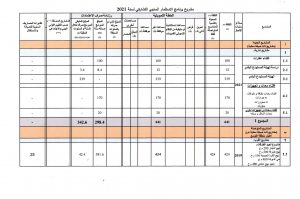They record daily transactions consistently and legibly to help accountants perform their functions. Generally, an accountant or business owner oversees a bookkeeper’s work. Sure, most small-business owners don’t start businesses because they’re accounting experts. But keeping accurate books and understanding what the numbers mean can spell the difference between business success and failure. More detailed definitions can be found in accounting textbooks or from an accounting professional.
Create a chart of accounts
Then they turn that bookkeeping data over to an accountant to provide analysis, advisory services, and prepare tax returns. In summary, integrating both bookkeeping and accounting into your business practices is vital for achieving long-term growth and financial stability. Don’t underestimate the power of accurate financial management—it’s the key to making informed decisions and driving your creative business forward. Accountancy goes beyond the basic record-keeping functions of bookkeeping.
Create a Free Account and Ask Any Financial Question
For information pertaining to the registration status of 11 Financial, please contact the state securities regulators for those states in which 11 Financial maintains a registration filing. Industry newcomers tend to use the terms https://www.vostlit.info/Texts/Dokumenty/Polen/XVII/1640-1660/Brostovskij/text2.phtml?id=10844 “bookkeeper” and “accountant” interchangeably, but there are a few important distinctions between the two. Certified Public Accountants can look at how your business is structured and advise you on how to best set it up.
Salaries and job opportunities
Accounting, on the other hand, provides business owners with reports and financial insights based on information gleaned from bookkeeping data. For entrepreneurs and high-growth businesses, differentiating between bookkeeping and accounting is crucial for effective financial management. While these terms are sometimes used interchangeably, they refer to distinct processes within the financial landscape of a business. Utilizing Accounting Services for Small Business can help ensure that both bookkeeping and accounting are handled effectively, allowing business owners to focus on growth and strategy. Accountants analyze the financial data bookkeepers curate to provide strategic insights and financial forecasts as part of the accounting process.
- On the other hand, Accounting is all about designing a system of records and preparing reports, taking the recorded data as a base.
- Every business needs to have a bookkeeping and accounting process to prepare the financial records at the end of a year/quarter.
- We believe everyone should be able to make financial decisions with confidence.
- Bookkeepers are usually responsible for documenting or checking financial data for a company or client, including checks received or written, invoices, cost spreadsheets, and monthly or quarterly revenue.
- The process of Bookkeeping is carried out by bookkeepers who are responsible for recording all transactions.
What’s the Difference Between Bookkeeping and Accounting?
But before it does that, accounting’s gotta start somewhere.Enter the world of bookkeeping. Understanding the difference between bookkeeping and accounting is essential for creative business owners. Both play unique roles in keeping your finances in check, and understanding these roles can significantly impact your business’s growth. You may need an accountant to help with tax preparation, budgeting, and forecasting.
- Other bookkeepers get certified in the bookkeeping software they use with clients.
- If they notice expenses are going over budget or under budget, they can look into what’s causing this discrepancy and make recommendations to resolve these problems.
- They lay the foundation for accountants by recording financial transactions.
- Bookkeeping is the foundation of any healthy financial system, whether for a small business or a large corporation.
- Sign up to receive more well-researched small business articles and topics in your inbox, personalized for you.
What Is The Difference Between Bookkeeping And Accounting?
Because they offer more detailed insights that inform business decisions, you don’t want to hire an accountant to only record income and expenses. You’d pay more for the same service a bookkeeper could do for less and, in the process, underutilize the accountant’s expertise. As a creative business owner—whether you run a photography studio, a marketing agency, or manage a content creation empire—maintaining http://www.donmobi.ru/only/hp/ipaq-614-business-navigator accurate financial records is essential for success. Effective bookkeeping ensures that every expense and income is documented in real time, helping you stay organized and providing a clear picture of your day-to-day finances. Bookkeeping is a transactional and administrative role that handles the day-to-day tasks of recording financial transactions, including purchases, receipts, sales and payments.
- A bookkeeper used to prepare accounts for an accountant to run the reports, provide the analysis, and do the taxes.
- A bookkeeper will complete these steps and use the chart of accounts to post every journal entry and financial transaction within the general ledger.
- They use this data to prepare financial statements, such as income statements, balance sheets, and cash flow statements.
- In the U.S., certified public accountants (CPAs) are accountants who have specific training and education and pass a rigorous exam on business and accounting concepts and regulations.
And because they’re tax compliant, you can feel confident they’ll keep you on the straight and narrow. In this post, we’ll cover the differences and similarities between accountants and bookkeepers and their services so you know which to hire. Typical bookkeeping tasks involve recording transactions, maintaining journals, reconciling bank statements, processing payroll, and generating periodic financial reports like trial balances. Bookkeeping tracks financial transactions, while accounting analyzes that data to provide insights and produce financial reports.
These statements provide a comprehensive picture of a company’s financial health, profitability, and overall performance over a specific period. Accountants don’t just present the data; they interpret it, identifying trends, potential problems, and growth opportunities. This http://kneht.com/4/?page=3 is because accountants typically have more advanced education, skills, and responsibilities compared to bookkeepers. Accountants are often involved in more complex financial tasks, such as financial analysis, budgeting, forecasting, and preparing financial statements.
 العربية
العربية


